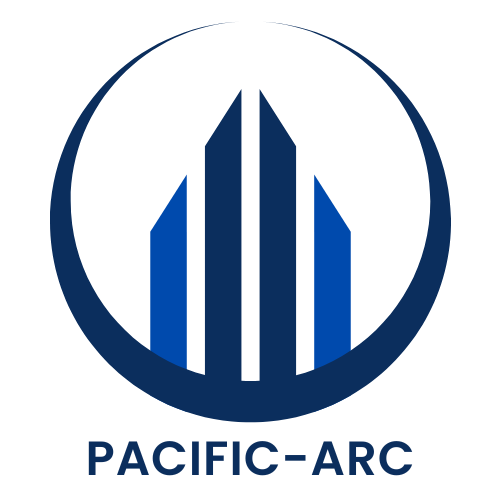Buying a house might feel like a distant dream for those with bad credit, but it doesn’t have to be. In fact, the down payment could be less daunting than expected. Imagine finally trading in that cramped apartment for a place with a backyard—where the only thing you have to worry about is keeping the lawn gnome from going rogue.
But how much should someone with less-than-stellar credit really save up? Spoiler alert: it’s not the same old story of 20% down. Different lenders have different rules, and some might even give a nod to your less-than-perfect credit history. So grab a cup of coffee, put on your thinking cap, and let’s dive into the world of down payments for those ready to turn their homeownership dreams into reality.
Table of Contents
ToggleUnderstanding Down Payments
Down payments play a crucial role in homebuying, impacting loan terms and affordability. Individuals with bad credit may find down payment requirements more flexible than expected.
What Is a Down Payment?
A down payment refers to the upfront amount paid when purchasing a home. It typically represents a percentage of the home’s purchase price. For example, while traditional down payments often range from 5% to 20%, many programs accommodate lower percentages. Homebuyers with bad credit can often access programs requiring just 3% to 5%. These lower down payments ease the financial burden and make homeownership attainable.
Importance of Down Payments
Down payments serve multiple purposes in the homebuying process. First, they demonstrate financial commitment to lenders, highlighting the buyer’s reliability. A sizable down payment can lower monthly mortgage payments and even enhance chances of mortgage approval for those with bad credit. Additionally, higher down payments reduce the overall loan amount, translating to potential savings on interest over time. Overall, down payments significantly impact financial strategies for prospective homeowners.
Impact of Bad Credit on Down Payments

Bad credit significantly impacts mortgage options and down payment requirements. Lenders perceive bad credit as a risk factor, leading to fewer choices for potential homeowners. Options such as Federal Housing Administration (FHA) loans may offer more flexibility, with down payments as low as 3.5%. Other programs could also cater to individuals with less-than-perfect credit, but interest rates often remain higher.
How Bad Credit Affects Mortgage Options
Mortgage options dwindle with bad credit. Qualifying for conventional loans becomes challenging. FHA loans provide a viable alternative due to their more lenient credit score requirements. Higher down payments may be necessary for those seeking conventional mortgages. Additionally, credit score improvements can lead to better loan terms in the future. Exploring government-backed loans often yields better results for individuals facing credit issues.
Typical Down Payment Requirements
Typical down payment requirements vary by mortgage type. Conventional loans often necessitate 5% to 20% down payments, while FHA loans usually require just 3.5%. USDA loans and VA loans can offer zero down payment options for eligible borrowers. Programs specifically supporting low-credit buyers may further lessen these figures. Understanding these varied requirements aids prospective buyers in assessing realistic financial strategies.
Alternative Financing Options
Homeownership becomes more attainable through various alternative financing options. Individuals with bad credit can explore numerous avenues tailored to their needs.
FHA Loans
FHA loans offer flexibility for those with lower credit scores. These government-backed loans allow down payments as low as 3.5%. Borrowers benefit from more lenient credit requirements compared to conventional loans. It’s essential to consider the mortgage insurance premiums that come with FHA loans, as they can increase overall costs. This option provides a pathway for homeownership without demanding a large upfront payment.
VA Loans
VA loans only apply to qualified veterans and active military members. No down payment is necessary for those who meet eligibility criteria, making this an attractive option for homeownership. Interest rates remain competitive as these loans typically don’t require mortgage insurance. The benefits of VA loans can significantly reduce the financial burden, especially for those with bad credit. It’s advisable to confirm eligibility through the U.S. Department of Veterans Affairs.
Subprime Mortgages
Subprime mortgages cater to borrowers with poor credit histories. These loans often come with higher interest rates, reflecting increased risk for lenders. While down payment requirements vary, they may still be lower than traditional loans. Borrowers should recognize that the overall cost may be higher in the long run. Exploring subprime options ensures that buyers with bad credit can still access financing despite the potential challenges.
Tips for Homebuyers with Bad Credit
Homebuyers with bad credit can still find pathways to homeownership. Several strategies may improve their chances.
Improve Your Credit Score
Improving a credit score matters significantly when applying for a mortgage. Paying bills on time boosts credit ratings. Additionally, reducing credit card balances below 30% of their limits enhances credit utilization. Reviewing credit reports for errors and disputing inaccuracies also helps. Seek professional credit counseling if needed. Taking these steps can lead to better loan offers and potentially lower interest rates.
Save for a Larger Down Payment
Saving for a larger down payment proves beneficial for homebuyers with bad credit. A down payment of 10% to 20% can strengthen the mortgage application. This larger upfront payment reduces the loan amount, leading to lower monthly payments. It also signifies financial commitment to lenders. Exploring budget adjustments and setting savings goals can aid in accumulating these funds. Putting aside any bonuses or tax refunds can bolster savings efforts.
Homeownership is within reach for those with bad credit. By understanding down payment options and exploring various lending programs, individuals can find pathways to make their dreams a reality. Lower down payments can significantly ease financial burdens and improve chances of mortgage approval.
With alternatives like FHA and VA loans, potential homeowners can access financing that accommodates their unique situations. Taking proactive steps to improve credit scores and saving for larger down payments can further enhance their prospects. Ultimately, with the right knowledge and resources, achieving homeownership is possible, even for those facing credit challenges.





